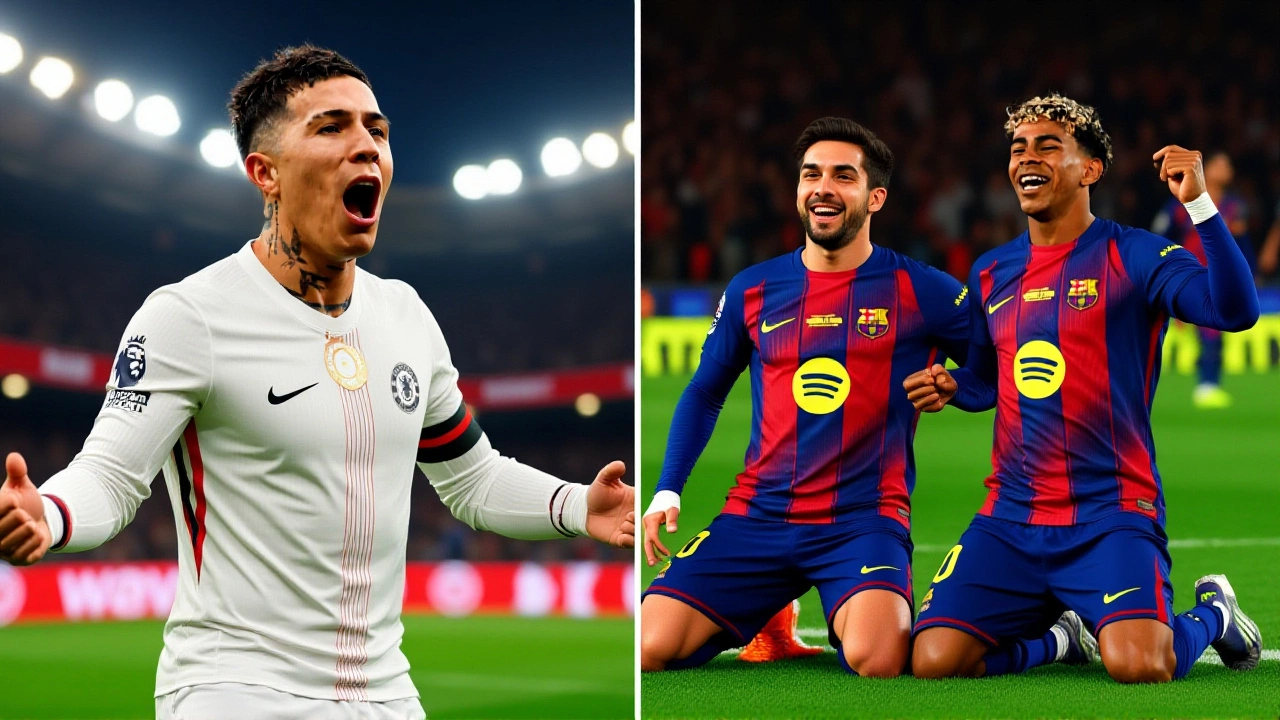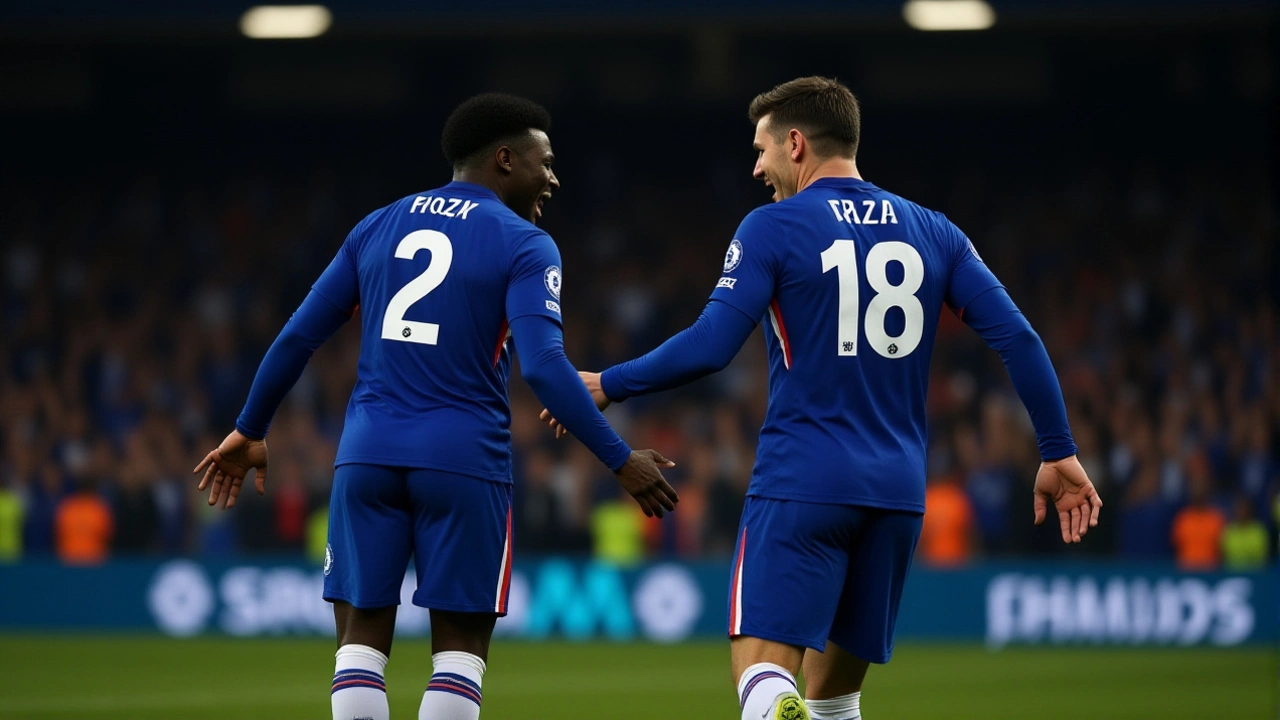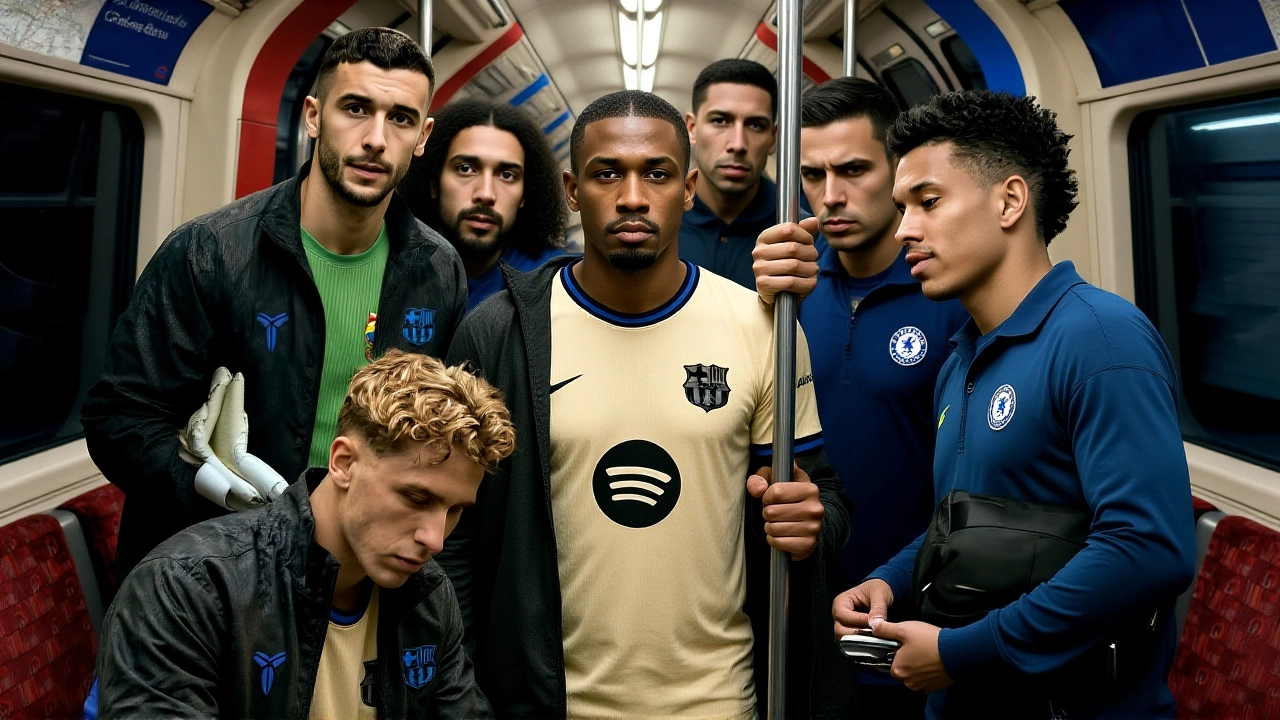On Wednesday, November 25, 2025, at 8:00 PM GMT, Chelsea Football Club will host FC Barcelona at Stamford Bridge in London for the first leg of their UEFA Champions League 2025/2026 Round of 16London tie — a high-stakes showdown between two European giants who’ve both finished the group stage with identical records: two wins, one draw, one loss, and seven points each. It’s not just another knockout match. It’s a test of resilience, tactics, and nerve — and Chelsea are being written off as underdogs, even on home soil.
A Match Built on Contrasts
Both clubs come into this fixture with momentum, but very different stories. Chelsea have been a puzzle this season — brilliant one night, brittle the next. They held their own against Bayern Munich in the group stage, only to collapse defensively against lower-ranked opponents. Their attack sparkles with pace, but their structure? Unsettled. Meanwhile, FC Barcelona, under new manager Hansi Flick, have looked sharper, more controlled, and far more clinical. Their midfield — deep, disciplined, and dangerously creative — is the engine of their resurgence.
According to NBC Sports analyst Andy Edwards, who broke down the matchup during a November 20 preview, “Chelsea are underdogs, it’s fair to say — not just in this one, but kind of for the Champions League this season.” That’s not just commentary; it’s the reality. Chelsea’s recent form has been erratic. They’ve conceded in three of their last five games. And their goalkeeper, Robert Sánchez, 27, has been hobbled by fitness issues. He’s played only 11 of 15 possible league minutes since October. The question isn’t just whether he’ll start — it’s whether he can stay on the pitch.
The Midfield Crucible: Caicedo vs. the Barcelona Machine
Everything hinges on the center of the pitch. For Chelsea, the key is the pairing of Moisés Caicedo, 23, and Enzo Fernández, 24. Caicedo has been sensational — a wall in front of the backline, a relentless ball-winner who covers ground like a man possessed. He’s the reason Chelsea have kept clean sheets in two of their last three home games. But Enzo? He’s been a shadow of his former self. A lingering knee issue has sapped his explosiveness. He’s been playing through pain, and it shows in his passing accuracy, which has dipped to 78% in Champions League play — down from 89% last season.
And then there’s Barcelona. Their midfield isn’t just deep — it’s layered. Pedri, Gavi, and the ever-calm Frenkie de Jong rotate like clockwork. “The midfield is deep as well,” Edwards noted at the 501-second mark of the NBC broadcast. That’s not just a throwaway line. It’s a warning. Chelsea’s midfield two will be outnumbered. If Caicedo doesn’t have help — and if Fernández can’t find his rhythm — Barcelona will slice through like a scalpel.

The Atmosphere and the Weight of History
Stamford Bridge won’t be silent. According to ModernGhana.com’s November 22 preview, “On the cold evening of 25 November 2025, Stamford Bridge had that old familiar buzz. You could feel it in the air, that sense that something...” — and you don’t need to finish the sentence. Fans remember 2012. They remember the nights when this stadium became a fortress. This isn’t just about advancing. It’s about identity. Chelsea haven’t reached the Champions League quarterfinals since 2021. For a club that spent £1 billion on transfers since then, that’s a failure. The pressure isn’t just tactical — it’s emotional.
Barcelona, meanwhile, are chasing redemption. After years of financial chaos and managerial turnover, Flick has restored order. They’ve scored 11 goals in their last four group games. They’ve conceded just twice. Their last away win in England? 2015, against Manchester City. That’s a decade ago. But this team feels different. More focused. Less burdened.
What’s at Stake — And What Comes Next
The winner of this tie advances to the quarterfinals. The loser? A long, cold winter of speculation, fan unrest, and managerial scrutiny. For Chelsea, a loss could mean another season without European football — and a leadership crisis. For Barcelona, it’s a chance to reassert themselves as a continental power, not just a domestic contender.
The second leg is set for March 11, 2026, at Camp Nou in Barcelona. But this first leg will dictate the tone. If Chelsea can hold firm — even to a 1-1 draw — they leave with hope. If Barcelona dominate, the tie is effectively over. No team has come back from a two-goal deficit in the Champions League knockout stage since 2019. That’s the math.

Behind the Scenes: Fitness, Form, and the Unseen Factors
Beyond the headlines, the small details matter. Chelsea’s preparation was disrupted by their Premier League match against Burnley at Turf Moor on November 22 — a 3-1 win, but one that left three players with minor knocks. Meanwhile, Barcelona’s squad depth allowed Flick to rest key players in La Liga last weekend. That’s not luck — it’s planning.
And then there’s the weather. London is forecast for 5°C and light rain on match night. Wet conditions favor Barcelona’s possession game — and punish Chelsea’s tendency to play long balls into space. If the pitch is slick, and if Enzo Fernández can’t push forward, Chelsea’s entire structure could collapse.
Frequently Asked Questions
Why are Chelsea considered underdogs despite playing at home?
Despite home advantage, Chelsea’s inconsistency — especially defensively — and injury concerns around Enzo Fernández and Robert Sánchez make them vulnerable. Barcelona’s midfield depth and recent form give them the edge in control and composure. Analysts note Chelsea have lost three of their last five home games in all competitions, while Barcelona have won six of their last seven away matches in Europe.
How crucial is Moisés Caicedo to Chelsea’s chances?
Extremely. Caicedo has made 14 tackles and 9 interceptions in Champions League play this season — more than any other midfielder in the competition. If he’s neutralized or forced into errors, Barcelona’s attacking trio of Raphinha, Lewandowski, and Gavi will exploit the space behind. His stamina and positioning are Chelsea’s only real shield.
What’s the impact of Enzo Fernández’s knee injury?
Fernández’s reduced mobility has cut Chelsea’s ability to transition from defense to attack. His passing accuracy has dropped 11% since October, and he’s averaged just 2.3 key passes per game — down from 4.1 last season. Without him operating at full capacity, Chelsea lose their creative spark in the final third.
Can Robert Sánchez handle Barcelona’s attack?
It’s a major concern. Sánchez has made only 5 saves in his last three appearances, and his distribution has been shaky under pressure. Barcelona’s high press will target him — especially if Chelsea’s defenders are forced to play long balls. His fitness is uncertain, and backup keeper Kepa Arrizabalaga hasn’t played a competitive match since October 15.
What’s the historical significance of this matchup?
Chelsea and Barcelona have met 11 times in European competition, with Barcelona winning 6, Chelsea 3, and 2 draws. Their last meeting was in the 2021 quarterfinals — a 2-1 Barcelona win on aggregate. This is the first time since 2012 that both clubs have reached the Round of 16 in the same season with identical group stage records. The stakes are as high as ever.
When and where is the second leg?
The second leg is scheduled for March 11, 2026, at Camp Nou in Barcelona, Spain. Kickoff is set for 8:00 PM CET. The winner on aggregate advances to the quarterfinals; if tied, away goals no longer apply — it goes to extra time and penalties.
